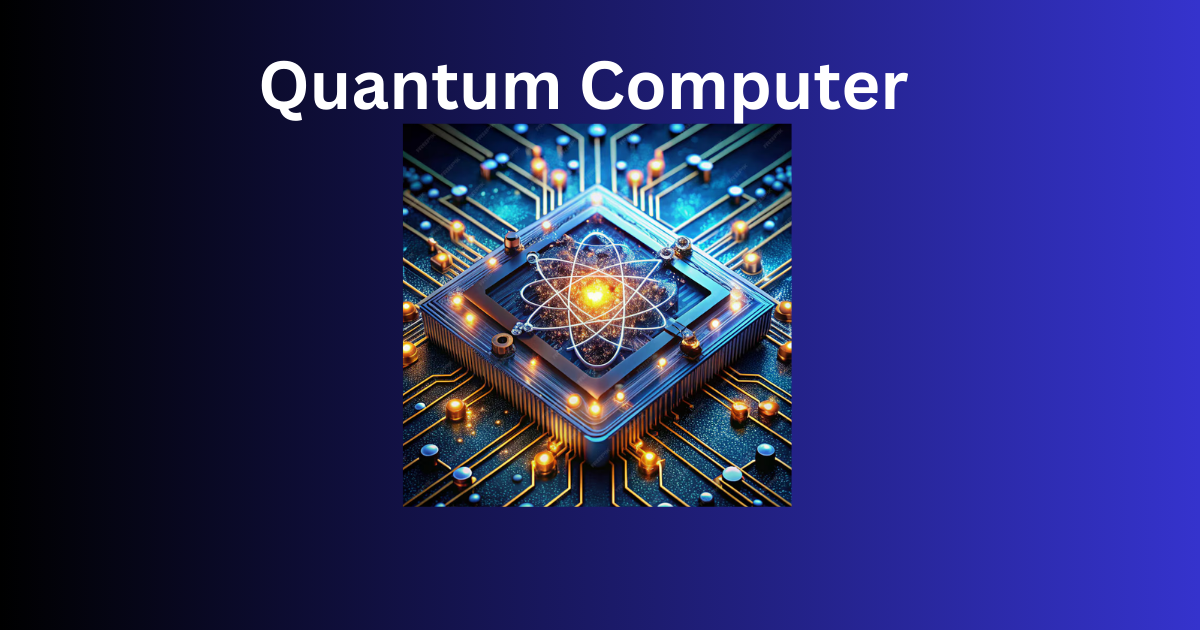Introduction
Quantum computers have often been described as the next frontier in computational technology, capable of solving problems that are impossible for traditional computers. But what is the current reality? Are quantum computers widely available, or are they still confined to labs and big tech companies? Let’s dive into the present state of quantum computing and debunk some myths around its availability.
What is a Quantum Computer?
To understand the availability of quantum computers, it’s important to first grasp what they are.The principles of quantum mechanics are utilized by quantum computers to carry out calculations.Unlike classical computers that use bits, quantum computers operate using qubits, which can represent both 0 and 1 simultaneously, thanks to quantum phenomena like superposition and entanglement.

How Quantum Computers Work
Quantum computers leverage quantum bits or qubits, which differ fundamentally from classical bits. Classical bits are either 0 or 1, while qubits can exist in multiple states at once. This phenomenon is known as superposition. Additionally, quantum computers use another principle called entanglement, where qubits become interconnected and influence each other, allowing them to perform complex calculations much faster.
Historical Development of Quantum Computers
Quantum computing has its roots in the early 1980s when physicists like Richard Feynman and David Deutsch proposed using quantum mechanics to process information. Over the decades, breakthroughs such as Shor’s algorithm and the development of stable qubits paved the way for today’s progress. Companies like IBM, Google, and Rigetti have played significant roles in bringing quantum computing to where it stands today.
Current Availability of Quantum Computers
So, who can access quantum computers in 2024? The short answer: they are not yet available for personal or mass use, but there is growing access through cloud services. Companies like IBM, Google, Microsoft, and Amazon offer limited access to quantum computers via their cloud platforms. However, these are still largely geared toward researchers, universities, and specific industries with highly specialized needs.
Quantum computers are mostly found in research institutions, government labs, and cutting-edge tech companies. For the general public, direct access to a quantum computer isn’t a reality yet, but cloud services are bridging that gap.
Types of Quantum Computers Available Today
There are various types of quantum computers, each based on different principles and architectures. Currently, two primary models exist:
- Gate-based quantum computers: This is the model most commonly researched and is more powerful for a broader range of computations.
- Quantum annealers: These are designed for optimization problems and are less versatile but still useful for specific tasks. D-Wave is a leader in this technology.
Quantum Computing in the Cloud
Several tech giants provide access to quantum computing services via the cloud:
- IBM Quantum Experience: Offers public access to quantum computers through cloud services. Researchers and enthusiasts can run quantum programs on real quantum hardware.
- Amazon Braket: A cloud-based quantum computing service that offers access to quantum simulators and real quantum hardware from various providers.
- Google’s Quantum Computing Service: Although not as widely available as IBM’s, Google also offers limited quantum cloud services for research purposes.
Challenges in Making Quantum Computers Widely Available
While there is significant excitement around quantum computing, several obstacles are slowing down its mass availability:
- Technical limitations: Quantum computers are still highly prone to errors, requiring extremely low temperatures to operate and very precise conditions.
- Hardware constraints: Building a stable and scalable quantum computer requires advanced materials and technologies that are still under development.
- Cost and expertise barriers: The cost of developing and maintaining a quantum computer is astronomical. Moreover, there is a steep learning curve, making it accessible only to those with significant expertise.
Quantum Computing Applications Today
Although still in its infancy, quantum computing is already finding applications in areas like:
- Drug discovery: Helping researchers simulate complex molecular structures.
- Cryptography: Potential to break current encryption methods, prompting the development of quantum-safe algorithms.
- Optimization problems: Used in industries like logistics and supply chain management for solving complex optimization problems faster.
The Role of Governments and Institutions in Quantum Research
Governments worldwide are investing heavily in quantum research. The U.S., China, and the European Union have each allocated billions of dollars to ensure they stay competitive in the global quantum race. Universities and private institutions are also key players, pushing forward the research needed to make quantum computing a reality.
The Future Potential of Quantum Computers
The future of quantum computing is both exciting and uncertain. While today’s quantum computers can’t yet outperform classical supercomputers on most tasks, researchers believe that within the next decade, we’ll see breakthroughs that will make quantum computers not only faster but also more reliable and practical for a wide range of industries.
How Long Until Quantum Computers Become Mainstream?
Experts predict that it will be at least 10-20 years before quantum computers become mainstream and commercially viable for everyday use. We are still in the experimental phase, and while rapid advancements are happening, there’s a long way to go before they become a staple in homes and businesses.
The Impacts of Quantum Computing on Society
Quantum computing has the potential to disrupt industries ranging from pharmaceuticals to finance. However, with such disruptive power comes ethical considerations—such as the potential for quantum computers to break existing encryption methods, which could compromise global security.
Conclusion
While quantum computers are making headlines and breakthroughs, their current availability is limited to specialized industries, research labs, and cloud-based services provided by tech giants.The widespread availability of quantum computers is still years away, but groundwork is currently being established for a future in which quantum computing will be instrumental in addressing some of the most intricate challenges facing the world.
FAQs
- How do quantum computers differ from traditional computers?
Quantum computers use qubits that can represent multiple states simultaneously, whereas traditional computers use bits that are either 0 or 1. - Who can use quantum computers today?
Researchers, universities, and select industries have access to quantum computers through cloud services provided by companies like IBM, Google, and Amazon. - What are the main challenges of quantum computing?
Quantum computing faces technical limitations, hardware constraints, and a lack of error-correction mechanisms, making them difficult to scale. - Will quantum computers replace classical computers?
Not in the near future. Quantum computers will likely complement classical computers by handling specific types of complex computations. - How is quantum computing impacting the tech industry?
Quantum computing is driving innovation in fields like cryptography, optimization, and machine learning, with tech companies leading the charge in research and development.

